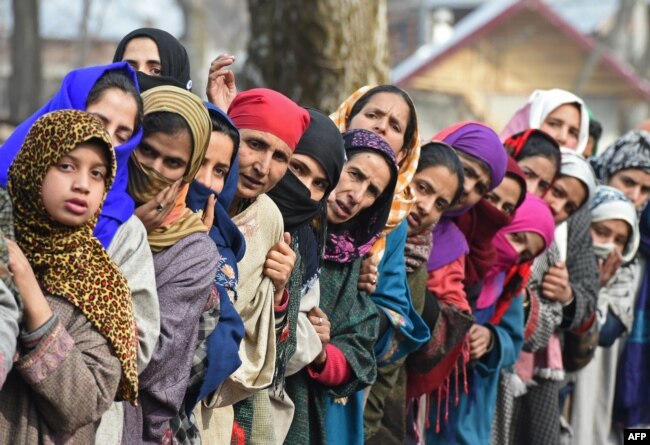The United States says it used its allies across the world, particularly those in the Gulf, to help defuse tensions between India and Pakistan, after military skirmishes between the nuclear-armed neighbors last week raised fears of a war, VOA News reports.
“We instructed numerous embassies, including in the Gulf, to weigh in on both sides,” a senior administration official told VOA on condition of anonymity.
“I think the Saudis were particularly helpful,” the official added, as Pakistani officials acknowledged the role of Middle Eastern countries in resolving the crisis. Pakistani Information Minister Fawad Hussain Chaudhry told the Saudi-based Arab News that the crown princes of Saudi Arabia and the United Arab Emirates played a “commendable” role during the crisis, adding that other Muslim countries had also been a “great help.”
Multiple other countries and international organizations, including the United Nations and the European Union, also worked to calm the situation after India and Pakistan appeared to be inching toward a military conflict.
The South Asian neighbors, once united as British India, have already fought three wars since their independence in 1947. Two of those wars were fought over the disputed Kashmir region that both sides claim. The U.N. considers the area disputed territory, the fate of which should be decided by locals through a plebiscite. Until the dispute is resolved, both India and Pakistan control a part of Kashmir, with a Line of Control, or LoC, running through the middle as the de-facto border.
The latest crisis started after Pakistan-based group Jaish-e-Mohammad claimed responsibility for an attack in Indian-administered Kashmir, at a place called Pulwama, that killed more than 40 security personnel. Pakistan denied involvement in the attack and offered cooperation in investigating the incident.
India, however, accused Pakistan of harboring terrorist groups that frequently target India. Last Tuesday, Indian fighter planes entered Pakistani territory to target what they said were JeM training camps in a strike India called “non-military” and “preemptive” against future attacks.
Pakistan denied any camps existed at the site. Locals dismissed Indian claims of killing hundreds of militants and said only one man was wounded.
A day later, Pakistan responded to what it said was a violation of its air space. Pakistani military spokesman Major General Asif Ghafoor said Pakistani fighter planes locked onto Indian military targets, but deliberately avoided them and fired on open ground instead, in order to avoid an escalation of tensions but also to send a message to India to not violate Pakistani territory again.
In an aerial dogfight that ensued, an Indian MiG-21 jet took a hit and the pilot was captured by Pakistani forces.
The pilot was later returned to India in what Pakistani Prime Minister Imran Khan said was a “gesture of peace,” helping to de-escalate the situation.
The international community welcomed the act but continued to press Pakistan to take meaningful action against militants operating on its soil.
On Monday, Pakistani Information Minister Chaudhry told the Reuters news agency the country was going to take such action. Pakistani media also reported through its sources that action against militant outfits seemed imminent.
Chaudhry, however, maintained that his country had nothing to do with the Pulwama attack and the decision to take action against these groups had been made well before the incident.
Prime Minister Khan says Pakistan is already taking action against any militant outfits to comply with the requirements of the Financial Action Task Force, an international body that monitors terrorism funding. The FATF has Pakistan on its watch list. In its last report issued in February, the task force said Pakistan has improved but needed further steps to curb funding for terrorism-related activities.
Pakistan’s government has issued a new order that a foreign office press release said will “streamline the procedure for implementation of Security Council Sanctions against designated individuals and entities.”

